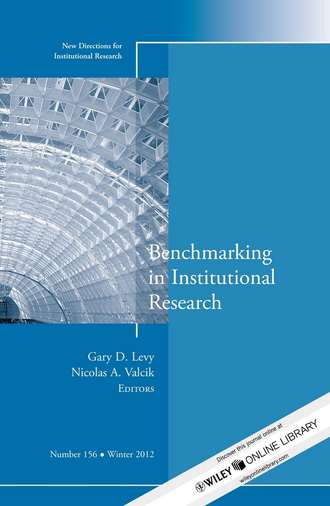Benchmarking in Institutional Research. New Directions for Institutional Research, Number 156
Levy Gary D.
While the term benchmarking is commonplace nowadays in institutional research and higher education, less common, is a solid understanding of what it really means and how it has been, and can be, used effectively. This volume begins by defining benchmarking as “a strategic and structured approach whereby an organization compares aspects of its processes and/or outcomes to those of another organization or set of organizations to identify opportunities for improvement.” Building on this definition, the chapters provide a brief history of the evolution and emergence of benchmarking in general and in higher education in particular. The authors apply benchmarking to: Enrollment management and student success Institutional effectiveness The potential economic impact of higher education institutions on their host communities. They look at the use of national external survey data in institutional benchmarking and selection of peer institutions, introduce multivariate statistical methodologies for guiding that selection, and consider a novel application of baseball sabermetric methods. The volume offers a solid starting point for those new to benchmarking in higher education and provides examples of current best practices and prospective new directions. This is the 156th volume of this Jossey-Bass series. Always timely and comprehensive, New Directions for Institutional Research provides planners and administrators in all types of academic institutions with guidelines in such areas as resource coordination, information analysis, program evaluation, and institutional management.
- Категория: зарубежная образовательная литература
- Правообладатель: John Wiley & Sons Limited
- Возрастное ограничение: 0+
- ISBN: 9781118640791
- Легальная стоимость: 2666.87 руб.





